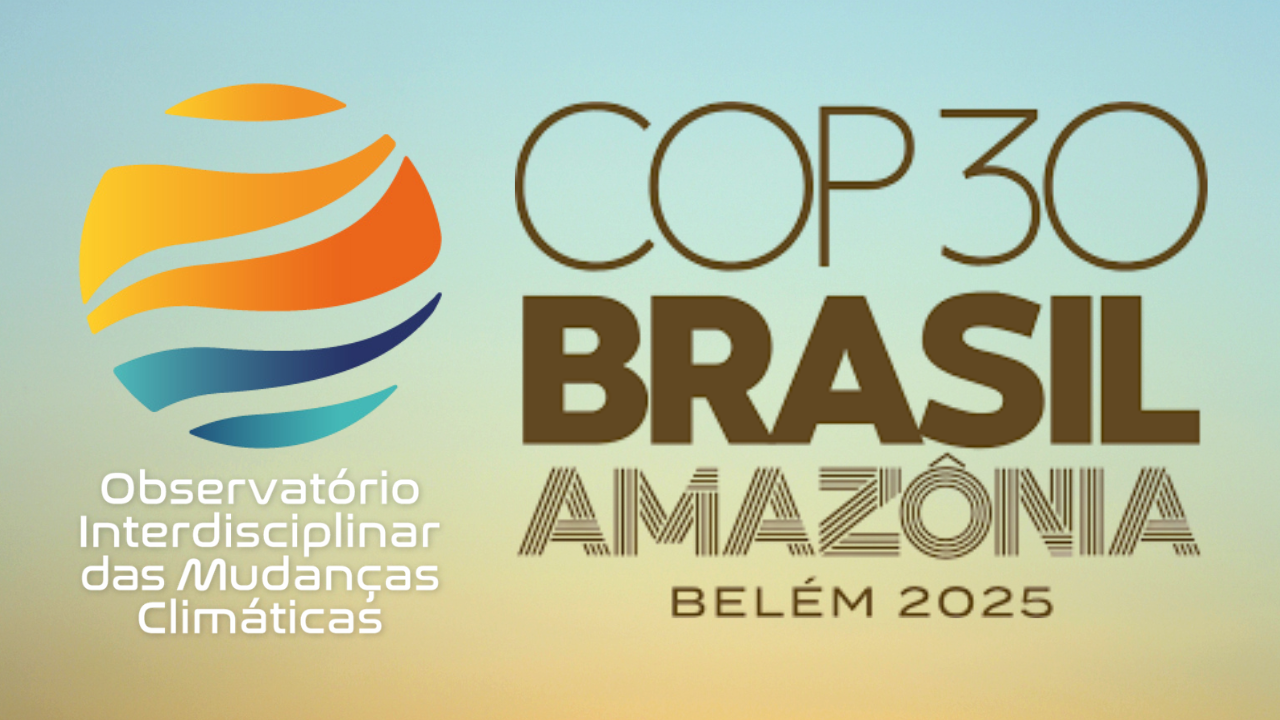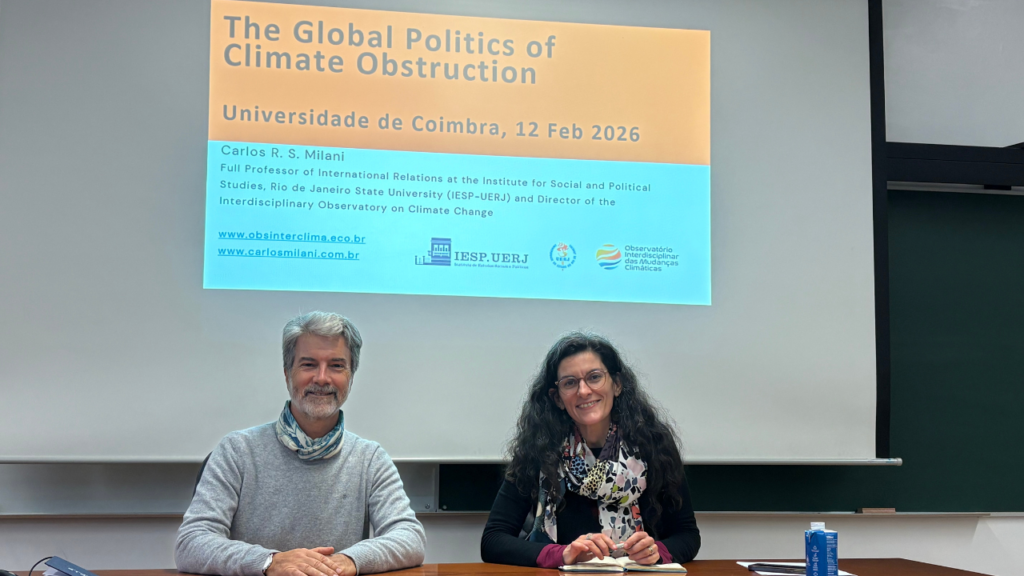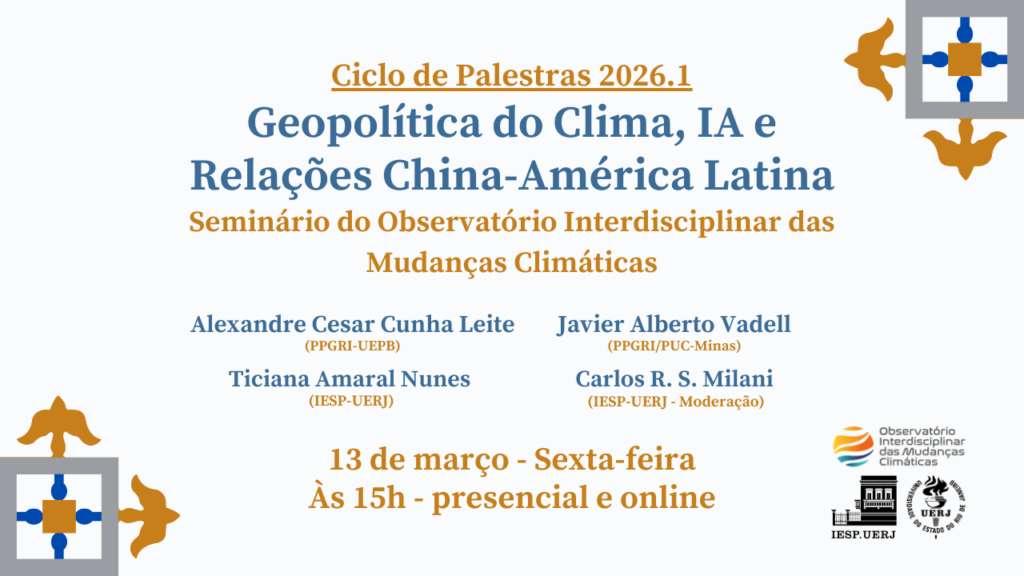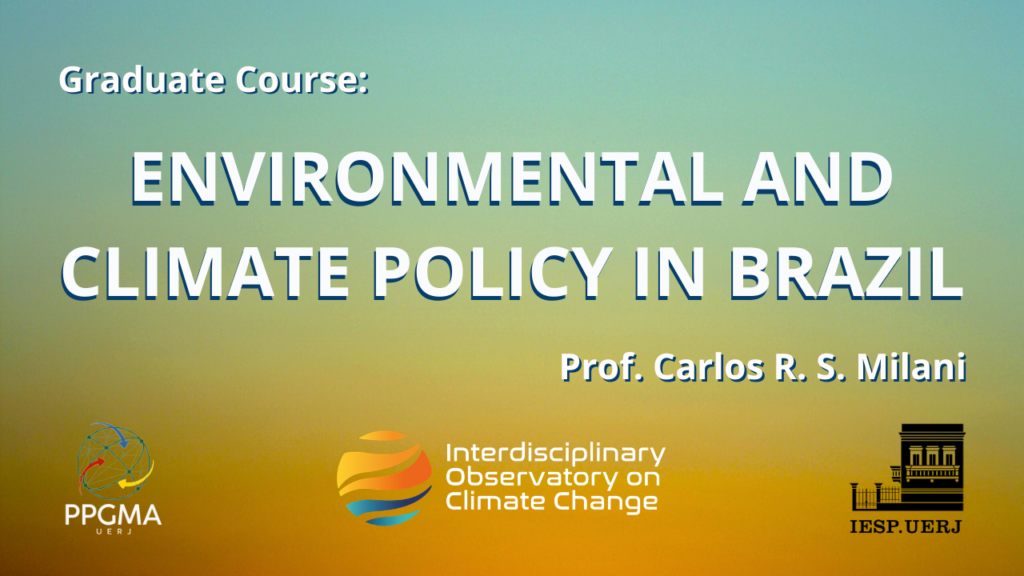From 10 to 21 November 2025, the city of Belém do Pará will host the 30th Conference of the Parties to the United Nations Framework Convention on Climate Change (COP30), an event that brings together international authorities and policymakers, representatives of civil society organisations and the academic community to negotiate goals for the global response to the climate emergency. During the event, the Interdisciplinary Observatory on Climate Change will deploy a delegation of researchers to promote a series of activities parallel to the Convention’s official programme. Representatives of the OIMC team will also participate in some official activities in the Blue Zone.

On 14 November, the Centre for Advanced Amazonian Studies (NAEA-UFPA) is welcoming the OIMC and the Climate Social Sciences Network (CSSN) to the Federal University of Pará (UFPA) for the seminar Climate Obstruction: A Global Assessment. Starting at 5 p.m. in the Professor Armando Dias Mendes Auditorium at the Guamá Campus, the seminar will present the main results of nearly three years of work on the compilation Climate Obstruction: A Global Assessment, at a panel composed by the editors Timmons Roberts (CSSN and Brown University) and Carlos R. S. Milani(Director of OIMC), with Marcela Vecchione (NAEA-UFPA) moderating the discussion. This research topic is part of the urgent and necessary discussion on climate obstruction, particularly in the case of Brazil, host of COP 30. After the debate, the event will be followed by a cocktail reception.

Throughout the Convention, between 11 and 20 November, the Observatory joins forces with the City Laboratory to organise, in partnership with the Climate and Society Institute (iCS), an intense programme of Roundtable Discussions, promoting meetings between various personalities, leaders and generations of the climate field. Directly involved in curating the series, our team is making up 8 of the 18 round tables offered in person, twice a day, at Casa da Cidade:
- 11 November, from 6pm to 7.30pm: The necessary convergence between environmental social movements and climate struggles, with participation of Mariana Castro.
- 12 November, from 4pm to 5.30pm: Climate Finance: Where Does It Come From and Where Does It (Not) Go?, with Ana Paula Tostes.
- 12 November, from 6 p.m. to 7:30 p.m.: Democratisation and Access to International Negotiations: Experiences of Young Climate Negotiators, with Beatriz Triani.
- 15 November, from 4pm to 5.30pm: Climate obstruction in Brazil and around the world, with Janaína Pinto and Carlos Milani
- 17 November, from 6pm to 7.30pm: Development: is it possible to reconcile it with climate action?, with Carlos Milani.
- 18 November, from 4pm to 5.30pm: Mangroves, carbon and climate justice: necessary adaptations, with the participation of Viviane Fernandez.
- 18 November, from 6pm to 7.30pm: Oil, Climate, Mangroves and Tidal Communities: What is at Stake?, with Mário Soares.
- 20 November, from 4pm to 5.30pm: Education for the Climate Crisis, with Elza Neffa e Bruna Bataglia.
At the end of each day of discussion rounds, always at 7:30 p.m., Casa da Cidade will also offer events to mark the release of publications on topics relevant to the climate agenda, especially for the debates and negotiations underway during COP, followed by cocktail receptions for those in attendance. Among the featured works, the OIMC team has authored five volumes:
- 11 November: Launch of the Atlas of Climate Justice in Latin America and the Caribbean (Clacso, 2025), produced by the OIMC in partnership with the Observatory of Geopolitics and Ecosocial Transitions (GeoEcos) at the Complutense University of Madrid (UCM). Editors Rubens de S. Duarte, Breno Bringel and Carlos Milan will be in attendance.
- 12 November: Launch of Agenda Verde nas relações União Europeia-América Latina (“Green Agenda in European Union-Latin America Relations”) (Mórula Editorial, 2025), the fourth volume in our Climate Emergency Collection, edited by Ana Paula Tostes and Yasmin Renni.
- 13 November: Launch of Antropoceno, Mudanças Climáticas e Ciências Sociais no Brasil (“Anthropocene, Climate Change and Social Sciences in Brazil”) (Mórula Editorial, 2025), the third volume of the Climate Emergency Collection, edited by Carlos R. S. Milani, Luisa Harduim and Mariana Castro.
- 15 November: Launch of the anthology Climate Obstruction: A Global Assessment (Oxford University Press, 2025), edited by J. Timmons Roberts , Carlos Milani, Jennifer Jacquet (University of Miami) and Christian Downie (Australian National University).
- 20 November: Launch of A Emergência Climática Bate à Porta. Como superar fatalismos e imaginar futuros sustentáveis? (“Climate Emergency Knocks on the Door. How can we overcome fatalism and imagine sustainable futures?”) (Mórula Editorial, 2025), the second volume of the Climate Emergency Collection, organised by Bruna Bataglia and Carolina F. Garrido.
Alongside organising the above meetings, our team will be engaged in an international research network, in partnership with researchers from the University of Hamburg (UHH, Germany), on the tensions of a global climate policy in crisis, considered from the perspective of those participating in COP30. The project aims to study the COP in Belém as a complex space for engagement, examining whether and how promises are made and analysing negotiations in official areas and demonstrations in unofficial spaces. This research project will be carried out by Arthur Facini, Júlia Nascimentos dos Santos and Sérgio Mecena Netto, among others.


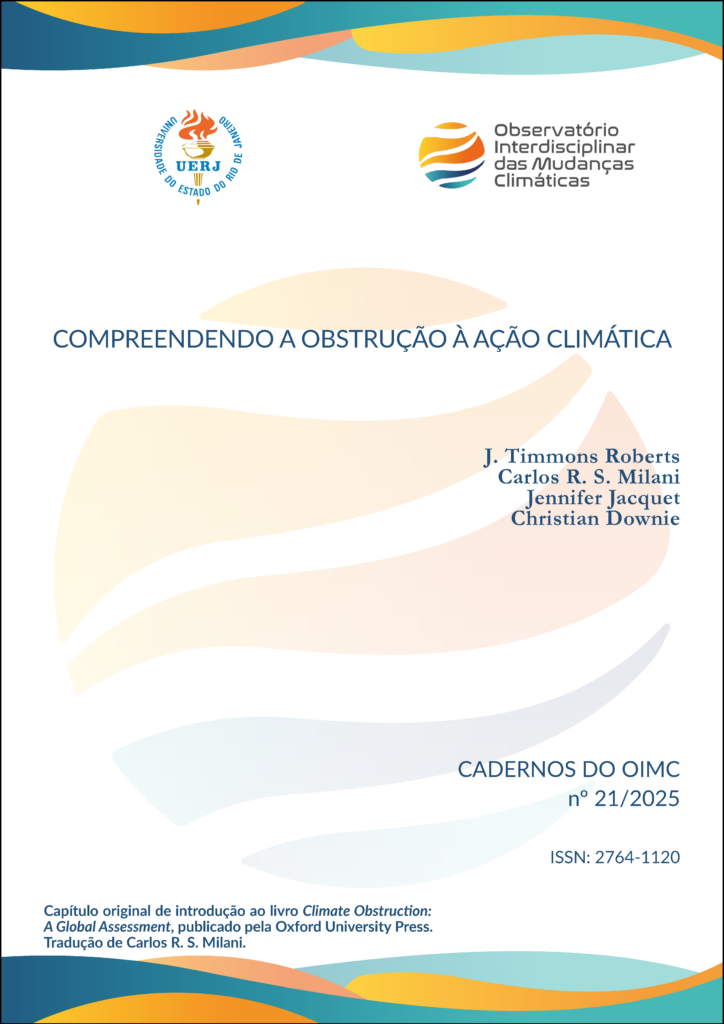
OIMC will also be bringing a series of printed items and materials to Belém with the aim of publicising the results of its various projects at COP 30. In addition to the new releases, several volumes of Cadernos do OIMC will be exposed, along with videos summarising our work and an educational booklet on the main causes of the climate emergency and some existing solutions.
From our headquarters at the State University of Rio de Janeiro (UERJ), a section of the Observatory composed of Eduarda Lattanzi, Leticia Britto dos Santos, Matheus Declie and Rafaela Collopy, is developing an Official Simulation of COP30. Involving students, young leaders, researchers, and representatives of civil society in the organisation of plenary sessions and thematic negotiation groups, this simulation aims to foster a greater understanding of how international climate negotiations work and encourage the development of new climate and environmental leaders.
At the same time, the delegation based in Rio de Janeiro will conduct a series of interviews with experts in various fields of research related to the climate emergency and representatives of organisations engaged in tackling it. The content of the interviews will be transformed into a web series on the immediate impacts and reactions of academia and civil society to the developments of the Conference, with the aim of encouraging online engagement and dialogue on the main topics discussed at COP30.
